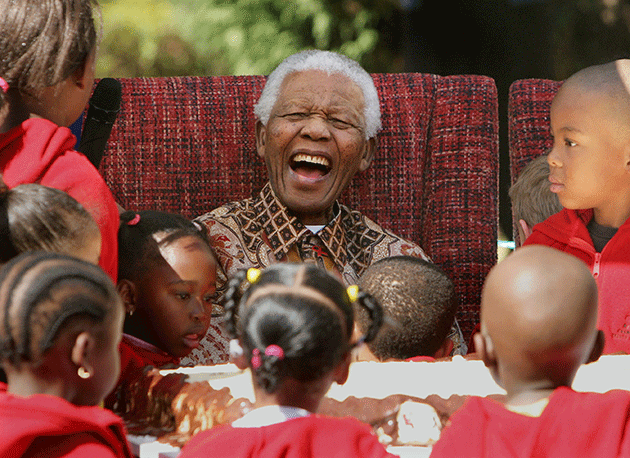The Leaving of Madiba
Saying goodbye to Nelson Mandela, beloved fighter, visionary, and king
A little more than a century ago, when Paul Krüger, the last president of the Transvaal died, a South African poet wrote: “Be quiet, people — a great man is passing by . . .” Krüger met his death in exile. His country, one of the two Boer Republics burnt and beaten to its knees by British imperialism after the second Anglo–Boer War, no longer existed. (Afrikaners refer to it as the Second Liberation War.)
Madiba is leaving us. As he enters the timelessness of exile, he leaves behind him a country that he had helped forge. But the country had deserted him a long time ago.
Madiba has gone. What remains now of our dreams of freedom, of the struggle for human dignity for all and particularly for the poor who had always been deprived of it? What is left of the new nation that was to arise through processes of a reconciliation of bloody histories to finally live together in peace and prosperity? What happened to our ethical imagination? Where did our revolution go?
But let us not forget that it is a human being taking leave. A boxer. A man who loved women. And children — certainly all children, but first of all his own, those he could neither defend nor accompany during his long years of absence in prison. Exile already! A fighter and a troublemaker. A lawyer. A strategist, for sure, but a man of principle. A charmer. A man with a sense of humour who could tell stories like no other. A humanist. A chief. A visionary. A king.
We need, first of all, to bow our heads and be silent. To be proud that we could be part of those who lived at a time when Nelson Rolihlahla (“he who shakes the branches”) Mandela still walked the earth. And to cry then, as he certainly would also have wept at what was done to the South Africa he had dreamt and for which he had sacrificed so much. To weep over the feeding frenzy of the small foxes, this sanctuary for mediocre thieves that his beloved Congress, the ANC had become. The saddest and most telling cry that was going up more and more was — luckily he was too old and weak to realize what his party had been turned into!
Of course, he had been a politician as well. He had tasted power, he allowed himself to be manipulated, he looked the other way when his comrades started indulging in an orgy of greed, he could be arrogant, he lied at times. But let time do the sorting out . . .
Let the cortège of crocodiles first have their way and their say. The professional weepers, the ‘people’, and the starlets. Let us try and maintain a privileged moment of decency and respect as we make as if we don’t notice the vultures tearing one another apart for the strips of moral authority still to be torn from the deceased one, for the money to be made from one man’s long life of struggle on behalf of all of us.
And let us spare a thought for this old warrior who made us believe, however briefly, that we are capable of living up to the good in us, and who finally now belongs to the epic and tragic trajectory of humankind. But first of all to the humblest ones, to those in their shacks and their holes and their prison camps who never knew him but who will murmur his name like a talisman against cruelty. As a word of inspiration. He honoured us.
Hamba kahle, Nkos’ . . .




























































































